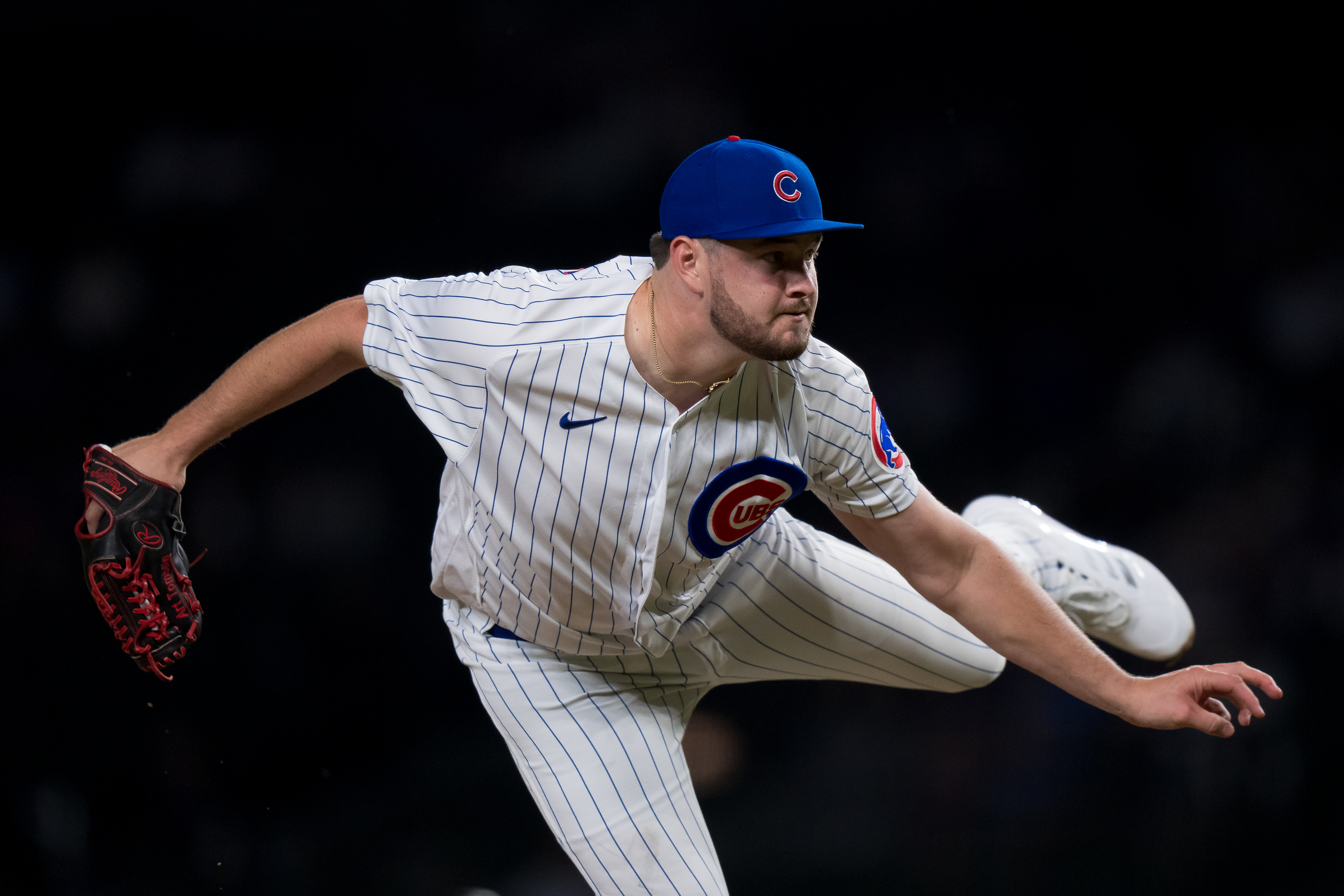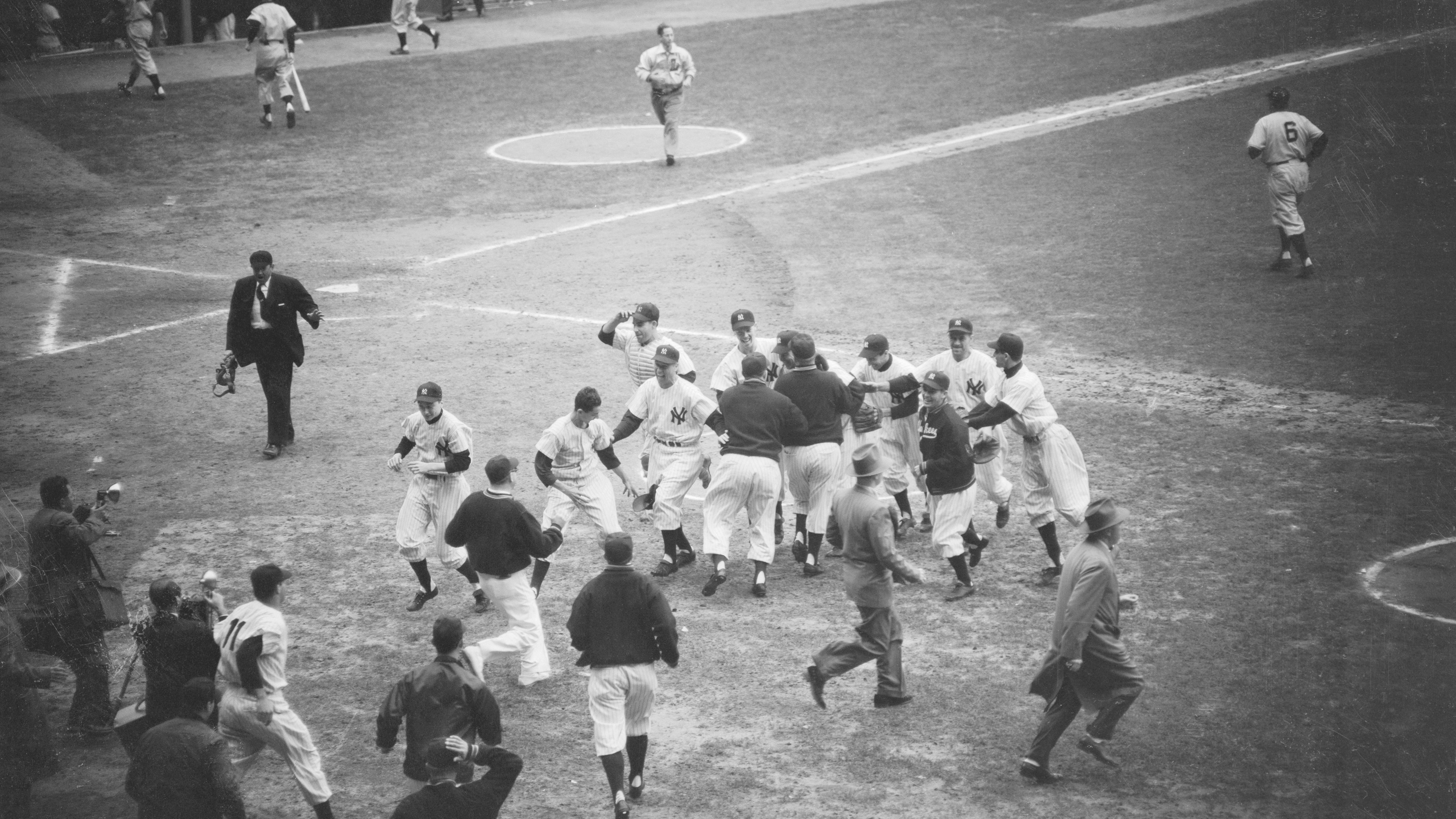Fear not, Baltimore Orioles and Los Angeles Dodgers fans.
Your team's 100-plus win season is not over yet. Other teams in Major League Baseball history have come back from a 2-0 deficit in the MLB Division Series to win three straight elimination games and advance.
It won't be easy, with the Orioles and Dodgers both needing to win two straight games on the road before forcing a deciding Game 5 at their respective home stadiums. But it has happened before, with some teams even going on to win the World Series.
Who was the first team to come back from a 2-0 deficit in the Division Series?
Get Tri-state area news and weather forecasts to your inbox. Sign up for NBC New York newsletters.
Technically, it was the Dodgers themselves. They rebounded from a 2-0 hole to win a best-of-five series in the 1981 MLB playoffs, but that was before the divisional round was officially adopted.
With much of the 1981 season canceled due to the players strike, MLB decided that division winners from both the first half and second half of the season would qualify for the playoffs. That made for what was unofficially the first best-of-five Division Series in league history.
The Dodgers, the NL West leader in the first half, went on to lose the first two games of the Houston Astros, the NL West leader in the second half, at the Astrodome. Los Angeles then won three straight at Dodger Stadium to advance to the NLCS against the Montreal Expos. The Dodgers went on to win that series in five games and then defeated the New York Yankees in the World Series in six games for their first championship since 1965.
MLB
The Division Series didn't return until 1995.
When did MLB switch to best of 5?
The 1995 MLB postseason was the first to be played under the expanded format, with each league divided into three divisions and a wild-card team being added as a playoff qualifier.
That made for a total of four playoff teams in each league, with the best-of-five Division Series permanently introduced. At the time, the team with home-field advantage in the series played the first two games of the series on the road, with the final three scheduled at their home stadium.
The League Championship Series was also best-of-five series with a 2-3 format until switching to best-of-seven in 1985. Two teams came back from a 2-0 deficit in the LCS: the 1982 Milwaukee Brewers over the California Angels and the 1984 San Diego Padres against the Chicago Cubs.
How many teams have come back from 2-0 deficit in MLB history?
Since the Division Series was permanently introduced in 1995, seven teams have come back from a 2-0 deficit in the Division Series, one of which went on to win the World Series.
The first to complete the comeback, the Seattle Mariners, did so during the very first year the Division Series was officially implemented.
Here's a look at each of the teams that have rallied back to win the Division Series after dropping the first two games.
1995 ALDS - Seattle Mariners defeat New York Yankees
The Mariners lost the first two games at Yankee Stadium before winning three straight at the Kingdome. Trailing 5-4 in the bottom of the 11th inning of Game 5, Edgar Martinez hit was is now known as "The Double" in Seattle, scoring Joey Cora to tie the game and a sliding Ken Griffey Jr. to win the game and the series.
1999 ALDS - Boston Red Sox defeat Cleveland Indians
The Red Sox lost the first two games at Jacobs Field, including an 11-1 rout in Game 2. The Sox then scored a combined 40 runs over the next three games, including a 23-7 win in Game 4 that set a record for most runs scored in a postseason game. The Red Sox then won Game 5 12-8 to advance to play the Yankees in the ALCS, which Boston lost in five games.
2001 ALDS - New York Yankees defeat Oakland Athletics
The Yankees, playing in the postseason just weeks after the 9/11 terrorist attacks, lost the first two games at home to the Athletics. They won Game 3 by a score of 1-0, a game that is best remembered for Derek Jeter's "Flip Play" that protected the Yankees' 1-0 lead. The Yankees then easily won Game 4 9-2 to return to New York. There, they won Game 5 5-3 with Jeter making another memorable play, catching a foul pop and flipping into the stands in the top of the eighth inning.
The Yankees went on to advance to the World Series, holding a lead in the bottom of the ninth inning of Game 7 before losing to the Arizona Diamondbacks on Luis Gonzalez's walk-off single.
2003 ALDS - Boston Red Sox defeat Oakland Athletics
The Athletics, for the second time in three years, were unable to close out the Division Series after taking a 2-0 series lead. Boston's Trot Nixon hit a walk-off, two-run home run in the 11th inning of Game 3. David Ortiz hit a go-ahead two-run double in the bottom of the eighth inning to give the Red Sox a 5-4 win in Game 4. Manny Ramirez hit a go-ahead three-run homer in the top of the sixth inning to propel the Red Sox to a 4-3 win in Game 5. The Red Sox went on to lose to the Yankees in Game 7 of the ALCS on Aaron Boone's walk-off home run.
They'd get their revenge the following season, winning four straight against the Yankees in the ALCS to become the first (and still the only) MLB team to come back from being 3-0 down in a series. The Red Sox went on to sweep the Colorado Rockies in the World Series for their first title since 1918.
2012 NLDS - San Francisco Giants defeat Cincinnati Reds
The Giants rallied from being down 2-0 in the Division Series and went on to win the World Series. With the home-field format reverting back to 2-3 to account for the addition of the Wild Card Game, the Giants became the first MLB playoff team to win all three of their Division Series elimination games on the road, losing the first two games at home and then winning the following three in Cincinnati. Game 3 required extra innings, with Buster Posey scoring the go-ahead run on an error for a 2-1 win. The Giants struck early in Game 4 and won 8-3. Posey's grand slam highlighted a six-run fifth inning in Game 5 en route to a 6-4 win.
The Giants made another impressive comeback in the NLCS. The Cardinals took a 3-1 series lead before the Giants, yet again, won three straight elimination games to win the series, outscoring St. Louis 20-1 over the final three games. The Giants became just the 12th MLB team to win a postseason series after trailing 3-1.
The Giants won the World Series quite easily in comparison to their path getting there, sweeping the Detroit Tigers for their second championship in three years.
2015 ALDS - Toronto Blue Jays defeat Texas Rangers
The Blue Jays' 6-4 loss to the Texas Rangers in 14 innings during Game 2 sent them on the road with a 2-0 deficit. The Blue Jays won the next two games in Texas -- 5-1 and 8-4, respectively. That set the stage for Game 5, which is best remembered for Jose Bautista's famous bat flip. With the two teams tied at 3-3 in the bottom of the seventh inning, Bautista crushed a three-run home run and celebrated with arguably the best bat flip in MLB history.
It lifted the Blue Jays to a 6-3 win for their first postseason series victory since winning the World Series in 1993 on Joe Carter's walk-off home run. Toronto went on to lose to the Kansas City Royals in the ALCS in six games.
2017 - New York Yankees defeat Cleveland Indians
Cleveland picked up where it left off in the regular season, during which they won 22 straight games in September, the second-longest streak in MLB history. They shut out the Yankees in Game 1 and erased a three-run deficit in Game 2 before winning in 13 innings on a walk-off single by Yan Gomes. The Yankees then won Game 3 1-0 behind seven shutout innings from Masahiro Tanaka, and cruised to a 7-3 win in Game 4 to set up a deciding game in Cleveland. Didi Gregorius homered twice in Game 5 off American League Cy Young Award winner Corey Kluber to lift the Yankees to a 5-2 win to complete the comeback.
The 2017 Yankees, who fell to the Astros in the ALCS in seven games, are the last team to rally from an 2-0 Division Series deficit.



